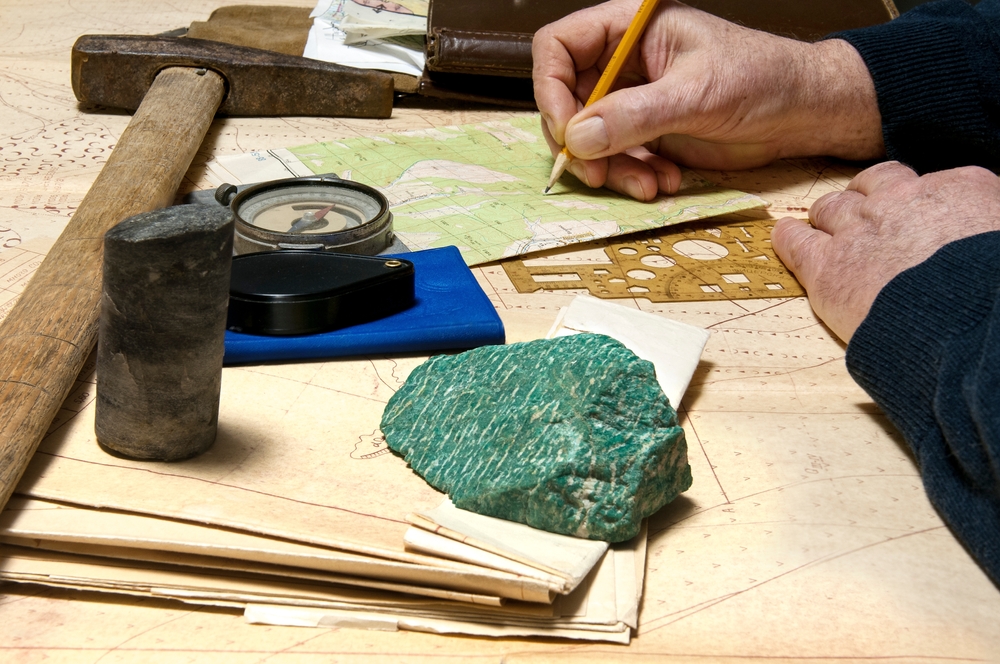If you enjoyed playing games like Atlas and GeoGuessr while growing up, you probably have a soft spot for geography. But is it worth exploring further? The academic terrain can be tricky. With the right information, you can make the right decisions to take your career to the highest altitudes. Geography has grown pretty diverse, offering various paths, each leading to exciting places. We’re here to help you map it out and explore the different majors in geography.
What are the Different Majors in Geography?
Geography, often dubbed the “science of place,” encompasses a wide range of disciplines that study the Earth’s landscapes, environments, and societies. Within the field of geography, there are several distinct majors, each offering unique perspectives and opportunities for exploration.
Broadly, most of the different majors in geography can be categorized under two branches, human geography and physical geography:
Human Geography
This concentration focuses on the relationship between humans and their environment, including topics like urbanization, migration patterns, spatial inequality, and human geography of specific regions. Human geographers contribute valuable insights into understanding the complexities of societies and informing policy decisions.
National Geographic has a helpful, comprehensive guide on the Human Geography of North America, which can help you better understand what the subject entails.
Physical Geography
Physical geography focuses on the Earth’s natural processes and phenomena such as landforms, climates, ecosystems, and environmental dynamics. Students in this major also study processes that shape the Earth’s physical features, such as erosion, weathering, and plate tectonics. Physical geographers play a vital role in understanding and managing natural hazards such as earthquakes, floods, and hurricanes. They also contribute to environmental conservation efforts by studying ecosystems, biodiversity hotspots, and the impact of human activities on the natural environment.
Besides these broad major groupings, many leading universities offer programs that focus on specific areas within the field. These include:
Geographic Information Sciences (GIS) and Mapping
GIS majors specialize in the use of spatial technology to collect, analyze, and visualize geographic data. They learn how to create maps, conduct spatial analysis, and develop geographic databases for various applications. GIS professionals are in high demand across industries such as urban planning, environmental management, public health, transportation, and emergency response. At some colleges, GIS may also be referred to as ‘Geospatial Sciences’.

Atmospheric Sciences
This major focuses on the study of Earth’s atmosphere, including weather patterns, climate systems, and atmospheric phenomena. Students in this major explore the intricacies of the atmosphere’s composition, structure, and dynamics, seeking to understand how various factors, such as temperature, pressure, humidity, and wind patterns, interact to shape weather and climate patterns. Atmospheric scientists play a crucial role in forecasting weather events, analyzing climate trends, and studying the impacts of climate change on the environment and society.
Sustainability
This concentration examines the relationships between economic activity, environmental policy, and sustainability. Coursework covers topics like land use, resource use, renewable energy strategies, and environmental conservation practices. Students critically analyze environmental policies and explore innovative solutions designed to balance human needs and ecological preservation.
Globalization
This concentration looks at global trade, global finance, and public health through the lens of geography. It covers topics like social movements, national policies, and global-local relations. Students explore how globalization impacts societies, economies, and cultures. Through the in-depth study of geopolitical shifts, students get a deeper understanding of how geographic conditions impact the modern world.
Traditional/General Geography
Some programs offer a more general geography degree without a specific concentration. These programs provide a broad education in both physical and human geography.
Besides these, some universities offer super-niche geography majors, focusing on various related areas like emergency management, geology, etc. Before enrolling, you should spend time exploring your own interests and then comparing them to the different geography majors offered by leading universities.
How to Choose from the Different Majors in Geography
Choosing a major in geography can be an exciting yet daunting decision. Here are some steps to help you navigate the process and select the right major for you:
Assess Your Interests and Strengths
Reflect on your passions, skills, and academic strengths. Are you drawn to environmental issues, social dynamics, or technological applications? Identifying your interests can help narrow down your options.
Consider Your Career Goals and Opportunities
Think about your long-term career objectives and how different geography majors align with your goals. Research potential job prospects, industries, and organizations where graduates with each major typically work.
Explore Different Academic Programs and Curriculum Options
Look into the specific courses and requirements for each geography major offered by different universities. Consider factors such as course offerings, faculty expertise, research opportunities, and extracurricular activities related to each major. Our college match tool can help you find majors that suit your preferences.
Seek Guidance from Advisors and Professionals
Consult your academic advisors, faculty members, and professionals working in geography or related fields. They can provide valuable insights, advice, and resources to help you make an informed decision.
Ultimately, the best geography major for you is one that aligns with your interests, strengths, and career goals, while also providing opportunities for growth and exploration.
Tips for Success in a Geography Major
Geography isn’t necessarily the easiest major, but it can be quite fun if you enjoy the subject, and your program. Here are some key tips for thriving in a geography major:
Develop Strong Analytical Skills
Many geography programs involve analyzing complex spatial data and interpreting geographical patterns, especially if your focus is GIS. Sharpen your analytical skills by practicing critical thinking, problem-solving, and data interpretation techniques. Engage actively in class discussions, participate in research projects, and seek opportunities to apply analytical methods to real-world scenarios. Take advantage of workshops, online tutorials, and hands-on training opportunities to build proficiency in technologies related to analytics.
Cultivate Effective Communication
Effective communication is essential in geography, whether it’s presenting research findings, writing reports, or collaborating with colleagues. Hone your written and verbal communication skills by practicing clear and concise expression of ideas. Take writing-intensive courses, join academic clubs or organizations, and seek feedback from professors to improve your communication abilities.
Engage in Fieldwork and Research
Fieldwork and research experiences offer invaluable opportunities to apply theoretical knowledge in practical settings. Participate in field trips, internships, and research projects to gain hands-on experience in data collection, analysis, and interpretation. Collaborate with faculty members or join research teams to explore your interests and contribute to advancing knowledge in the field.

Stay Current with Developments in Geography
Geography is a dynamic and evolving field with ongoing advancements in technology, research methods, and theories. Stay informed about current trends, emerging technologies, and groundbreaking research by reading academic journals, attending conferences, and following reputable sources in geography-related fields. Continuously seek opportunities for professional development and lifelong learning to stay competitive in the field.
Seek Mentorship and Guidance
Build relationships with faculty members, academic advisors, and professionals in the field to seek mentorship and guidance. They can offer valuable insights, advice, and support to help you navigate your academic journey and career aspirations. Take advantage of office hours, networking events, and mentorship programs to connect with experienced professionals and learn from their experiences.
Balance Academics with Extracurricular Activities
While academics are essential, don’t forget to prioritize your overall well-being and personal interests. Engage in extracurricular activities, hobbies, and social events to maintain a healthy balance between academics and life outside of school. Developing a well-rounded lifestyle can enhance your overall academic performance and contribute to your personal growth and fulfillment.
Making the most of your time in college will help you prepare for life after graduation. Following these steps will help you get the best college experience, while setting you up for professional success in the field.
Related: How To Succeed in College
Real-World Applications of Geography Majors
Geography majors play key roles across various industries and sectors, contributing to solving real-world challenges and informing decision-making processes. Here are some areas where geography majors play a significant role:
Business and Market Analysis
Geography majors provide valuable insights to businesses and industries through spatial analysis and geographic information systems (GIS). By analyzing demographic data, consumer behavior, market trends, and spatial patterns of economic activity, geographers help businesses make informed decisions regarding market expansion, site selection, and resource allocation. They also conduct location-based marketing research to identify target markets, assess competition, and optimize distribution networks.
You May Want to Know: The Top 15 Highest Paying Business Jobs
Urban Planning
There are many opportunities for geography majors in the field of urban planning. They can assist development initiatives by analyzing population dynamics, land use patterns, transportation systems, and environmental factors. They collaborate with city planners, architects, and policymakers to design sustainable communities, improve urban infrastructure, and enhance the quality of life for residents. Geographers also study concepts like urban sprawl, gentrification, and social equity issues to develop strategies for inclusive and equitable urban development.
See O*Net Data on Urban Planners
Emergency Management
Geography majors play a crucial role in emergency management and disaster response efforts. By creating hazard maps, conducting risk assessments, and analyzing vulnerability factors, geographers help identify areas prone to natural hazards such as floods, wildfires, earthquakes, and hurricanes. They also develop evacuation plans, emergency preparedness strategies, and mitigation measures to minimize the impact of disasters and ensure community resilience. GIS technology is widely used in emergency operations centers to coordinate response efforts, allocate resources, and communicate critical information to first responders and the public.
Recommended Read: What is an Emergency Management Degree?
Public Health
In public health, geography majors contribute by analyzing spatial patterns of disease transmission, environmental health risks, and access to healthcare services. They use GIS and spatial analysis techniques to map disease outbreaks, identify high-risk populations, and assess environmental health disparities. Geographers also study the social determinants of health, such as poverty, education, and access to clean water, to inform public health policies and interventions aimed at improving health outcomes and reducing health inequalities.
Cartography
Geography majors specializing in cartography play a crucial role in mapmaking, spatial data visualization, and geographic information representation. They design maps for various purposes, including navigation, urban planning, environmental monitoring, and resource management. Cartographers use advanced software and geographic data to create accurate and visually appealing maps that convey complex spatial information effectively. This helps others understand and navigate the world better.
See O*Net Data on Cartographers

Weather Forecasting
Geography majors with a focus on atmospheric sciences contribute to weather forecasting efforts by analyzing atmospheric data, studying weather patterns, and developing predictive models. They provide essential information to meteorologists and emergency responders to anticipate and prepare for severe weather events, such as storms, hurricanes, and heat waves. Weather forecasters use advanced technologies, including radar, satellites, and computer models, to monitor and predict changes in the weather.
Geology
Students who pick geology majors study the Earth’s physical structure, composition, and processes, including rocks, minerals, landforms, and tectonic activity. They contribute to geological surveys, environmental assessments, and natural resource exploration projects. Geologists play a vital role in understanding geological hazards, such as earthquakes, landslides, and volcanic eruptions, and assessing their impact on human settlements and infrastructure.
These are but a few examples of areas in which geography majors can make a difference. The scope is great, but it all depends on where your interests lie. Do you want to contribute to development, social welfare, or research that helps understand the world better? Choosing a relevant major and concentration in geography isn’t too difficult once you identify your own goals.
To Sum Up
Geography as a major has more scope than one might think. With a diverse range of programs today, there are many different geography majors students can choose from. Whether you’re interested in helping businesses, and society at large, or simply contributing to developments in the field, there’s a geography major for you. Chart your own course to a successful career by navigating this subject with the right information as your compass.
Frequently Asked Questions (FAQs)
With a major in geography, you can pursue a variety of career paths in fields such as environmental planning, urban development, GIS analysis, market research, disaster management, public health, cartography, geology, and more. Geography majors possess skills in spatial analysis, data interpretation, critical thinking, and communication, making them valuable assets in diverse industries. Whether you’re interested in addressing environmental challenges, shaping urban landscapes, analyzing market trends, or informing public policy, a degree in geography opens doors to a wide range of rewarding opportunities.
How easy a major will be for you depends on your individual strengths, interests, and academic preferences. Geography encompasses a broad range of sub-disciplines, each with its own unique challenges and requirements. Some students may find certain areas of geography, such as physical geography or GIS analysis, more challenging than others. Ultimately, the “easiest” major in geography is subjective and will differ from person to person. You should choose a major based on your interests, career goals, and strengths rather than solely focusing on how easy or difficult someone else says it might be.



